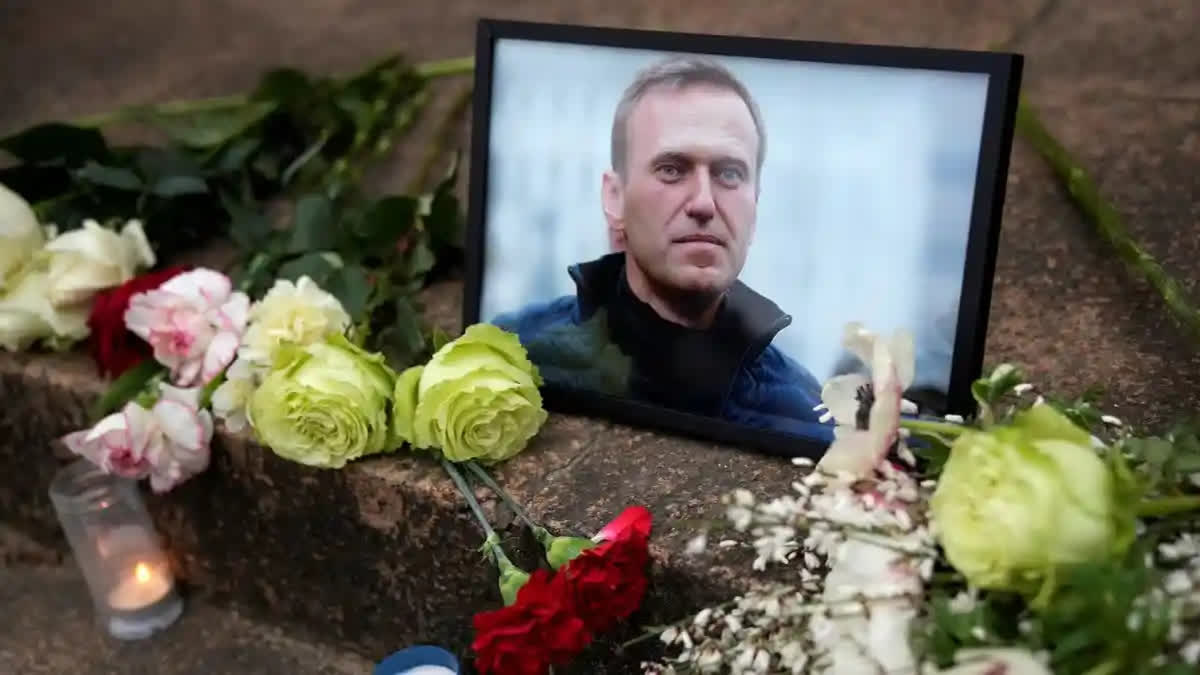Moscow:Relatives and supporters of Alexei Navalny are bidding farewell to the opposition leader at a funeral Friday in southeastern Moscow, following a battle with authorities over the release of his body after his still-unexplained death in an Arctic penal colony. His supporters say several churches in Moscow refused to hold the service before Navalny's team got permission from one in the capital's Maryino district, where he once lived before his 2020 poisoning, treatment in Germany and subsequent arrest on his return to Russia.
The Church of the Icon of the Mother of God Soothe My Sorrows, which agreed to hold the service, did not mention it on its social media page. Authorities lined the road from a nearby subway station to the church with crowd-control barriers, and riot police deployed in big numbers early Friday. A hearse set out with Navalny's body toward the church, his team said.
Burial was to follow in the nearby Borisovskoye Cemetery, where police also showed up in force. Navalny's mother, Lyudmila Navalnaya, spent eight days trying to get authorities to release the body following his Feb. 16 death at Penal Colony No. 3 in the town of Kharp, in the Yamalo-Nenets region about 1,900 kilometres (1,200 miles) northeast of Moscow.
Authorities originally said they couldn't turn over the body because they needed to conduct post-mortem tests. Navalnaya, 69, made a video appeal to President Vladimir Putin to release the body so she could bury her son with dignity. Once it was released, at least one funeral director said he had been forbidden to work with Navalny's supporters, the spokeswoman for Navalny's team, Kira Yarmysh, said on social media. They also were unable to find a hearse for the funeral.
Unknown people are calling up people and threatening them not to take Alexei's body anywhere, Yarmysh said Thursday. Russian authorities still haven't announced the cause of death for Navalny, 47, who crusaded against official corruption and organized big protests as Putin's fiercest political foe. Many Western leaders blamed the death on the Russian leader, which the Kremlin angrily rejected.
